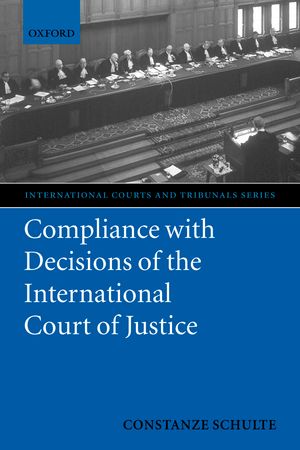
This book examines the compliance record of states parties to proceedings before the International Court of Justice (ICJ), the principal judicial body of the United Nations. It undertakes a comprehensive analysis of the follow-up of the ICJ's judgments and interim measures from the Court's creation in 1945 until the present day. ICJ judgments and provisional measures from the Corfu Channel case in the late 1940s to the Arrest Warrant Case decided in 2002 are examined, with particular focus on state practice.
After explaining the legal bases for the obligation of compliance and the enforcement of ICJ decisions, the author analyses all decisions that gave rise to an obligation of compliance. The analysis is contextual, taking into account the history of the dispute, the underlying political interests, the parties' attitudes towards involvement of the ICJ, and the substance of the applicable law.
This analysis reveals that the compliance record for judgments is generally satisfactory, whereas that for provisional measures is at first sight rather poor. Yet the record for provisional measures must be understood in a more nuanced light. In several cases, the applicant gained at least a certain benefit from the decision even though it was not (or was not fully) implemented. The author examines the reasons for the difference in the track records of judgments and provisional measures and explores mechanisms that could be conducive to enhanced compliance.